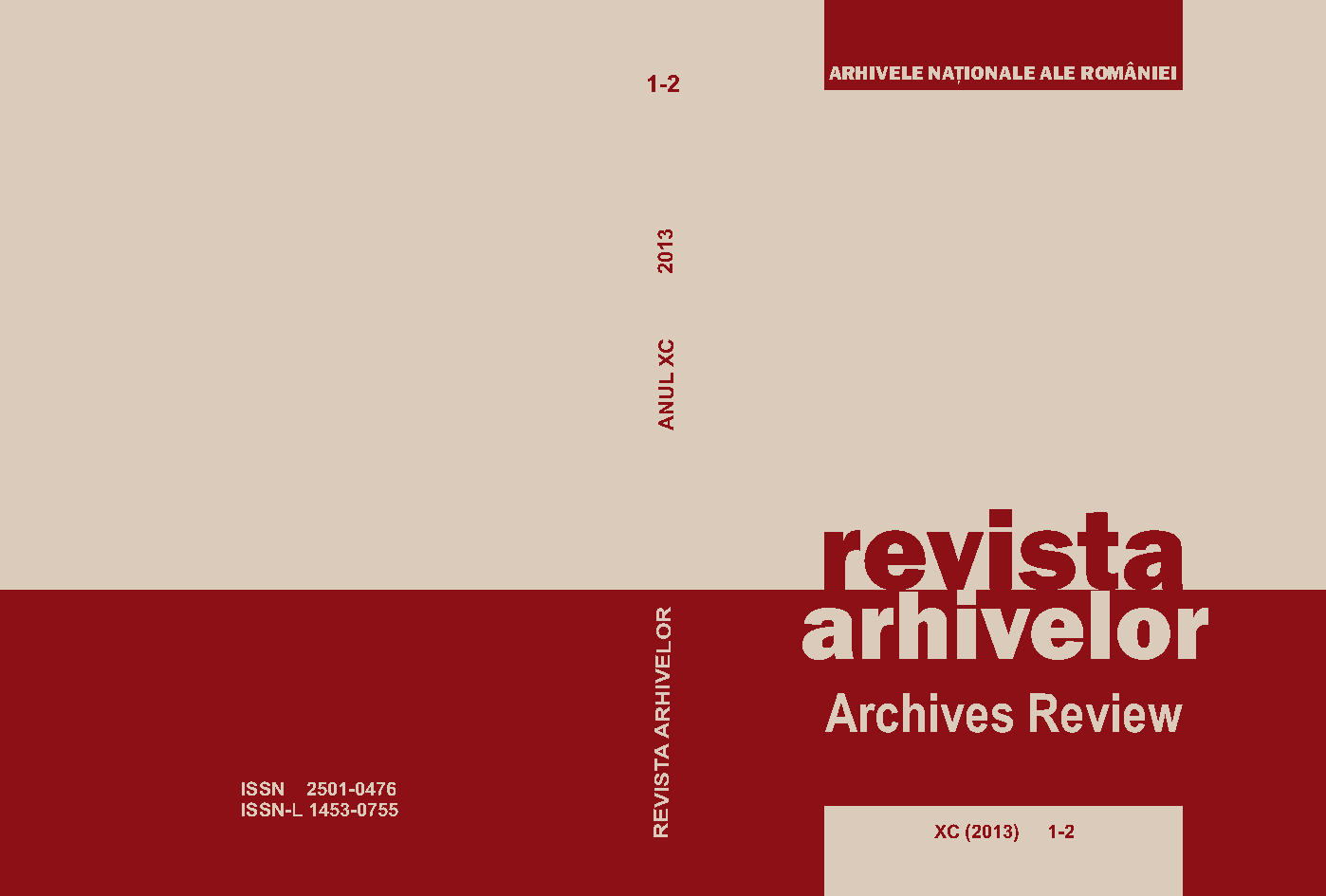Patrimoniul documentar bănăţean – victimă a tensiunilor de după Primul Război Mondial
The Documents Inheritance in Banat – Victim of the Tensions after the First World War Mondial
Author(s): Ionela Claudia MoscoviciSubject(s): Library and Information Science, Archiving, Pre-WW I & WW I (1900 -1919)
Published by: Arhivele Nationale ale Romaniei
Keywords: First World War; Banat; Violences against Documents; Requisitions of Documents; Destruction of Documents
Summary/Abstract: The end of the First World War in the region of Banat led to a lack of authority that favoured the irreversible loss of several traces of the past. This study makes an attempt to sketch a preliminary appraisal for this lost memory caused by the requisition, theft or destruction of the documents, archives, and libraries in Banat. This search focuses upon two types of sources: archival, particularly documents issued by the French military mission in Banat in 1919, which pointed to the peril of the loss of documents and intervened to save them; memoirs, works provided by the intellectuals, mostly powerless witness for the degradation of documents. The French archival sources give an image at the regional level. The reports and informative notes issued by the mission mention the Serbian military occupation as the main peril in the robbery of the documents. Book fonds of various institutions, maps and cadastral plans of the counties in Banat and also masterpieces were commandeered under the reason of establishing the Serbian-Romanian boundary. The memoirs regard the situation in Banat at micro level, from the village viewpoint. The social and national tensions, accumulated in the settlements in Banat during the war, augmented in the first days of November 1918, once with the sybstantial return of the soldiers from the battle front. Actually, the latter are not the only actors in the scenes of aggression, since the population itself was also involved in the large suite of violent facts: robberies, pillages, devastations, and destructions. The intellectuals in the villages, the priests in particular, had no power in preventing these destructions, only a few of them being able to prevent the people’s rage against any Hungarian signs: inscriptions, books, documents, registers, and so on.
Journal: Revista Arhivelor
- Issue Year: XC/2013
- Issue No: 1-2
- Page Range: 83-91
- Page Count: 9
- Language: Romanian

